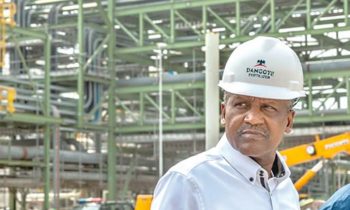…15million tons of diesel and 20 million tons of PMS were imported into West Africa in 12 months
Olusola Bello
Subsidising the pump price of Premium Motor Spirit (PMS) or petrol which is not in tune with the current reality in the global oil market, is a misuse of Nigeria’s tax payer’s money and is not sustainable.
The price of PMS on the international market is three times the pump price in Nigeria at the moment. About 15 million metric tons of diesel and 20 million tons of Premium Motor Spirit or petrol were imported into the West African Sub-region with the majority of them coming to Nigeria in the last 12 years.
These were the opinions of industry leaders who x-ray the current trends at the international market in respect of the challenges facing petroleum products in terms of prices and their availability. They came to the conclusion that continuous capping of pump prices in Nigeria is not sustainable and bad for her economy.
The leaders who spoke at the Major Oil Marketers Of Nigeria’s (MOMAN) organized a workshop for National Association of Energy Correspondents, said, there is no doubt that the oil and gas market has been going through some level of unusual turmoil and uncertainty which has consequently led to increasing in prices of petroleum products across the world.
Nigeria being an integral part of the world market, they said, is not immune to the situation as it is also exposed to the same trends.
James Gooder of Argusmedia.com and vice president of crude and Africa Markets who was the speaker at the event stated that the increase in diesel and aviation fuel prices is higher than the increase in petrol prices globally because of the supply of diesel and aviation fuel (middle distillates) is mainly from Russian refineries which are currently under sanctions, while Petrol is from Northwestern Europe refineries which are readily available.
This situation clearly shows why there is an astronomical jump in the prices of these commodities on the international market.
James Gooder said oil prices have hit a near 14-year high because the Russia-Ukraine conflict has supercharged existing upward market momentum.
According to him, recovering global demand and constrained OPEC +output, low stocks and high refining costs have all played a part.
“But Russia is one of the three largest oil producers along with US and Saudi Arabia and market unwillingness to buy Russia oil in the spot market means there is greater competition for alternatives – hence higher,” he said prices.
Diesel, he stated, is driving the oil complex, and Russia a major exporter of diesel as well as crude oil is currently facing sanctions, a situation that has affected the price of the commodity and by extension the price of diesel which is now a strong premium.
The Argusmedia.com boss stated that Prices are highly volatile and unpredictable.
As regards the supply to the West African sub-region, he said, the sub-region relies on imported products because of lack of sufficient regional refining capacity.
In his view, the surplus of PMS/gasoline in the European Union finds a natural home in Nigeria, because, in a global market, products flows are directed by price.
Nigeria, he said, is competing with other destinations for products and that even if she has sufficient refining capacity, it would still be in a competitive market and exposed to import parity prices.
He however stated that regulating the price of Premium Motor Spirit by the government is completely out of step with the market reality.
“Capped retail prices for PMS may be popular, or even expected, among those that can afford to own a car. But current delivered prices for PMS are around three times as high as the pump price.”
Is this sustainable? Is financing this the best use of Nigerian taxpayers’ money? He asked.
“There is an unfortunate but clear incentive to smuggle subsidized fuel out of Nigeria to neighbouring countries where retail prices are higher.”
The chairman of MOMAN, Olumide Adeosun, in his remarks said the backbone of distribution is based on diesel, from transport (vessels and trucks) to energy costs (depots and stations). This affects not just petrol distribution but also the distribution of aviation fuel.
He said the total distribution margin under the current PMS pricing template accounts for 11.5% of the PMS pump price despite significant increase in costs. Operators are struggling along the supply chain to get petrol out of the nuzzles into the cars which are difficult to sustain.
Olusola Bello





